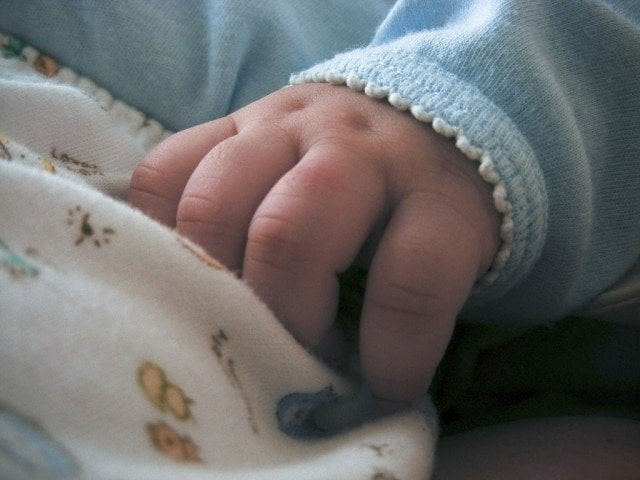Shortage of paediatric facilities plagues hospitals
With measly public facilities and unaffordable private care, babies requiring critical treatment are left to die

Home to 2.4 million children under the age of five, Karachi is facing an alarming shortage of paediatric intensive care (PICU) and neonatal intensive care unit (NICU) facilities at its government hospitals.
Across eight major public hospitals in the city, there are barely 2,200 beds, 126 ventilators and 309 incubators at paediatric wards and emergencies, which are woefully inadequate given the city's child population. These limited facilities are available at the Civil Hospital Karachi, National Institute of Child Health (NICH), Lyari General Hospital, Liaquatabad Hospital, Qatar Hospital Orangi Town, Sindh Government Hospital Nagan Chowrangi, Sindh Government Hospital New Karachi, and Sindh Institute of Child Health Korangi.
Due to the insufficient number of beds and equipment, children with serious conditions are often turned away, pushing desperate parents towards private hospitals. However, the cost of private healthcare is beyond the reach of most families. Admission to a private paediatric ICU often requires an advance payment of Rs1 to 2 lakhs while the daily cost of ICU care ranges between Rs50,000 to Rs100,000. On top of this, parents must bear the cost of medicines and surgical supplies separately.
Maria, a mother from NIPA Chowrangi, lamented that child treatment had become unaffordable for most parents. "Five years ago, a paediatric consultation cost Rs500 to Rs800. Now, paediatricians charge Rs3,000 to 5,000 per visit. In Gulshan-e-Iqbal, doctors charge Rs2,000 for a five-minute consultation, and blood tests cost another Rs2,000 apart from Rs1,500 for medication. A single illness can cost up to Rs5,000," shared Maria.
Similarly, Iqbal, father of five-year-old Arham, shared that he spent over Rs7,300 in just two weeks while treating his son's fever. "The money was spent on doctor's fees, tests for malaria, dengue, and typhoid, and prescribed medicines. I earn Rs1,200 per day as a factory worker and had to take three days off. This brought the total financial hit to around Rs10,000," said Iqbal.
Professor Dr Waseem Jamalvi, President of the Pakistan Paediatric Association (Sindh), stated that illnesses among children were increasing due to a lack of vaccination and consistent breastfeeding for two years. "These lead to low immunity, developmental issues, and higher vulnerability to infections. Children's treatment has become excessively costly at the private level, with an average of Rs10,000 to Rs30,000 charged per treatment episode," said Dr Jamalvi.
Across Sindh, especially in rural areas, there is a severe shortage of PICUs. In many government hospitals, two to three children are admitted to a single bed due to lack of space. Despite yearly budget increases, no substantial addition has been made to the number of paediatric beds in decades. The current neonatal mortality rate in Sindh stands at 2.9 per cent-that is 29 out of every 1,000 newborns die due to complications.
In many districts across Sindh, there are no functioning PICUs. In the few facilities that are available, there is a lack of specialist paediatricians, trained nurses, and support staff. With 10.2 million children under the age of five-about 17 per cent of Sindh's 60 million population-there is an urgent need for emergency paediatric care.
According to Professor Dr Jamal Raza, former director of NICH, Pakistan has not been able to reduce its neonatal death rate, with 40 out of every 1,000 newborns dying from complications like premature birth, infections, and breathing difficulties.
"Maternal malnutrition, lack of prenatal care, and unsafe home deliveries, especially in rural Sindh, are among the main culprits. In many rural hospitals, incubators are not available even for low-birth-weight babies. NICUs are needed for 20 per cent of the 250,000 annual births in Sindh. NICH has 75 incubators, Civil Hospital has 36 across six wards, and the Sindh Institute of Child Health has 52," noted Dr Raza.




















COMMENTS
Comments are moderated and generally will be posted if they are on-topic and not abusive.
For more information, please see our Comments FAQ